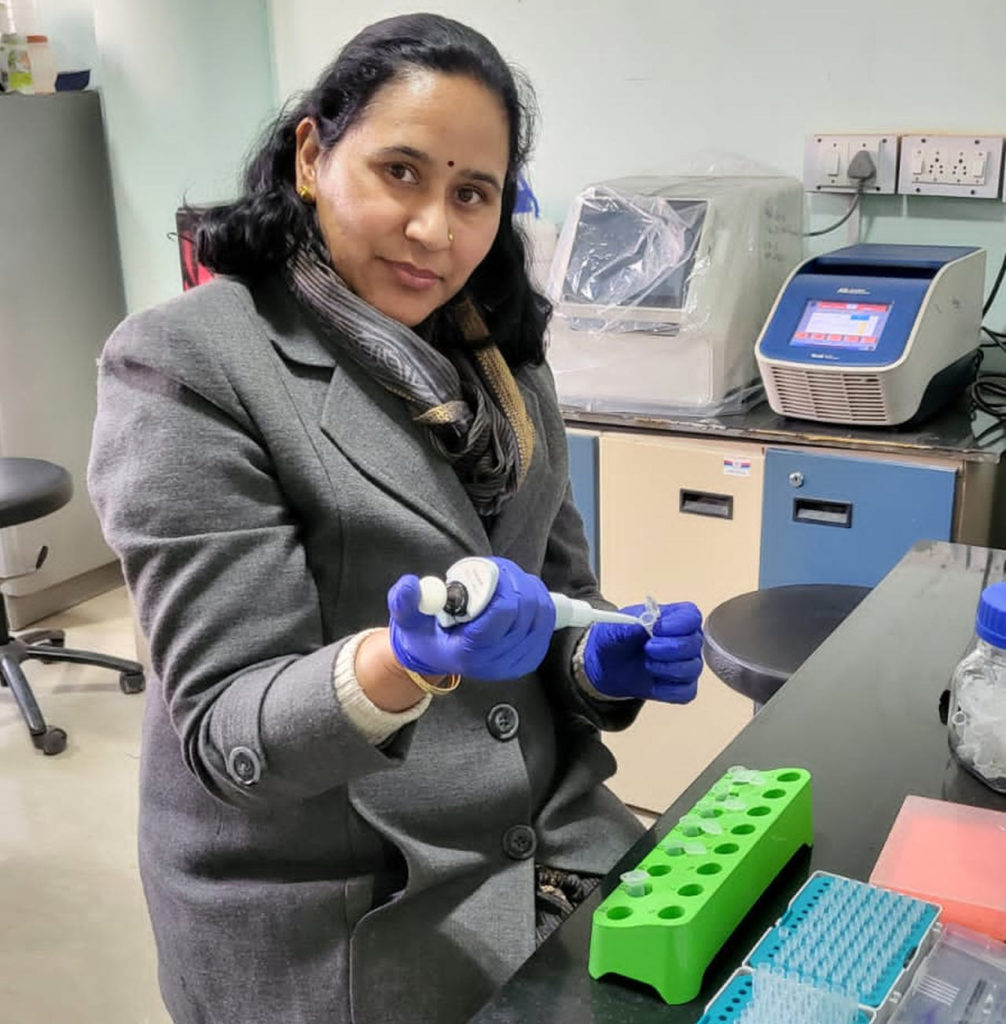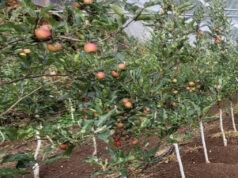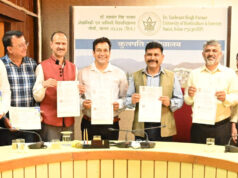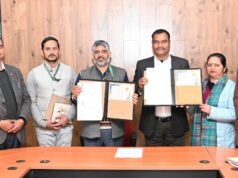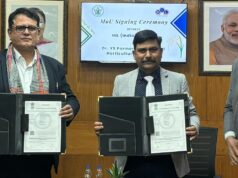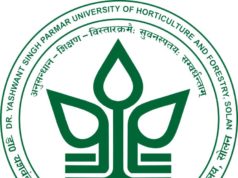In a significant stride towards sustainable agriculture, a collaborative team of scientists spanning multiple institutions has secured a groundbreaking patent on the ‘antifungal properties of nanoparticles.’ The Patent Office, Government of India, has officially recognized the team’s efforts, acknowledging their potential impact on revolutionizing crop disease management.
Among the key contributors is Dr. Monica Sharma, an Associate Professor in the Department of Plant Pathology at the College of Horticulture and Forestry, Neri, Hamirpur, affiliated with Dr YS Parmar University of Horticulture and Forestry (UHF), Nauni. The collaborative effort also includes scientists from Amity University and ISRC, Shimla.
The nanoparticles developed by the team exhibit promising antimycotic properties, paving the way for a potential alternative to synthetic fungicides in crop protection. With a high reactivity for their target sites, these nanoparticles can impede the growth and activity of fungal pathogens even at remarkably low concentrations.
Dr. Monica Sharma, with a six-year dedication to researching the antifungal properties of nanoparticles, has already contributed significantly to the scientific community. Her work has been published in renowned international journals with high impact factors, solidifying her position as a leader in this domain.
Expressing appreciation for the collaborative efforts, the Vice-Chancellor of UHF emphasized the importance of taking this breakthrough further for the benefit of farmers, particularly in the face of evolving climate conditions. The Vice-Chancellor urged the team to translate their findings into practical solutions that could address the pathogenic challenges faced by farmers.
Director of Research, Dr. Sanjeev Chauhan, also extended heartfelt congratulations to the researchers, recognizing the potential of their work to reshape agricultural practices. The collaborative effort showcases the power of interdisciplinary research in tackling critical issues and opening new avenues for sustainable agriculture.
This patent marks a significant milestone in the ongoing efforts to develop eco-friendly and effective solutions for crop protection, underscoring the importance of scientific innovation in addressing global challenges.


